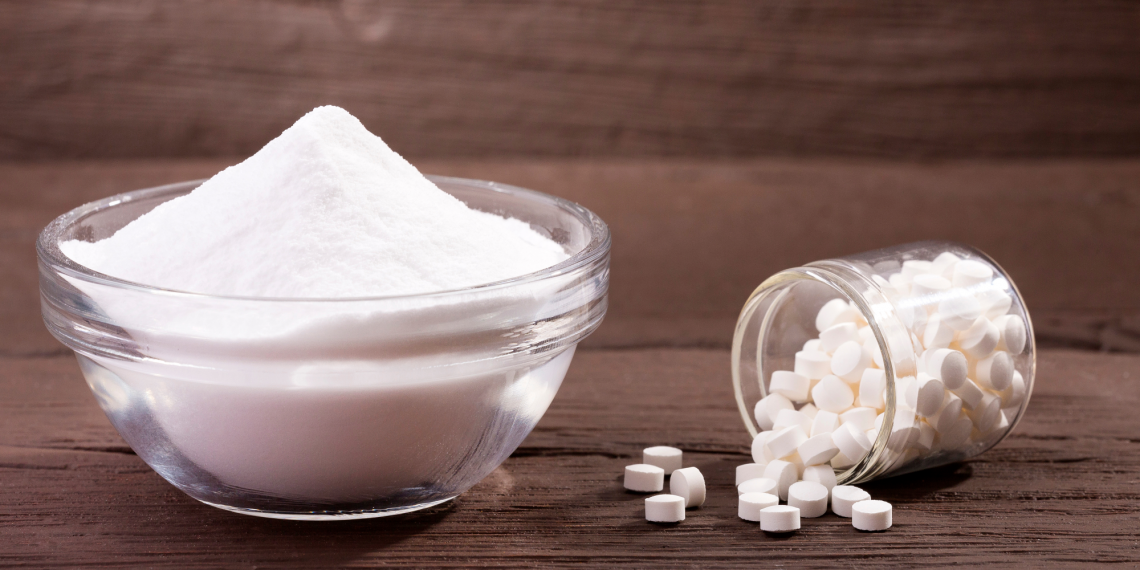
Glucose powder
Carbohydrates as macronutrients are the main source of energy for the human body. They are divided into four main groups depending on the size of the molecules they are build - monosaccharides, disaccharides, oligosaccharides and polysaccharides. Glucose powder is a monosaccharide which is the main source of energy for the cellular metabolism of most cells in the human body. It is the only source of energy for the red blood cells and the cells of the central nervous system. Under normal conditions, the human body meets its glucose needs by breaking down carbohydrates into glucose. Once in the blood stream, depending on the body's current physical condition, one part of the glucose serves to meet immediate energy needs, second part for fat synthesis and a third part to replenish the levels of glycogen in liver and skeletal muscles. Glycogen is a polysaccharide that the human body synthesizes from glucose and uses as a backup source of energy in conditions of energy deficiency. During a balanced diet, energy deficiency can occur in the course of increased physical activity. This leads to glycogen break down into glucose with the help of the enzyme glucagon in order to meet the body’s energy needs. Glycogen reserves are limited and it can be depleted during longer and more intense physical activities. To compensate for the energy deficit the human body triggers catabolic processes related to the breakdown of fats and proteins. The breakdown of proteins occurs mainly by skeletal muscle proteins, which leads to a decrease in their volume. As a result of that, glucose intake is necessary after intensive physical activity. In addition to suppressing catabolic processes glucose has another important function. The absorption of glucose by the cells is done with the help of the enzyme insulin, the level of which increases immediately after the glucose enters the blood stream. Insulin is also responsible for cellular permeability to amino acids and some macroergic compounds, thus increasing their concentration in muscle cells and stimulating protein synthesis. Therefore, at the end of each workout, the intake of an adequate amount of glucose suppresses the catabolic processes in the body and creates conditions for stimulating protein synthesis in muscle cells, leading to muscle growth.


 Bulgarian
Bulgarian